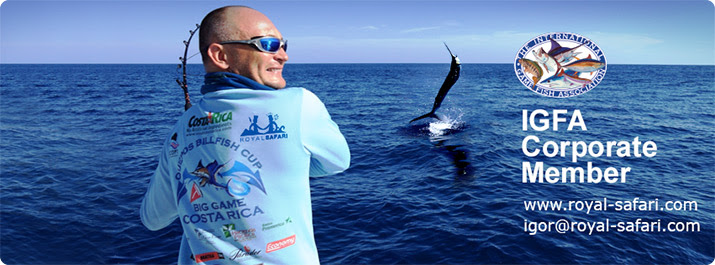Here is the continuation of the story about a combined fishing taken place in June, 2017. After the fishing for prehistoric alligator-pikes in Texas (follow “Fishing Reports” to read the beginning of the story), our team went to the Pacific Coast of Alaska to catch the predators inhabiting the cold waters of the southern part of Alaska.

In Anchorage we met the rest of the group, and our team of 8 anglers went to Seward. We spent a night at a cozy hotel located just at the gulf coast, and early in the morning, we boarded a boat specially designed for the northern sea fishing and headed towards new experiences and trophies.
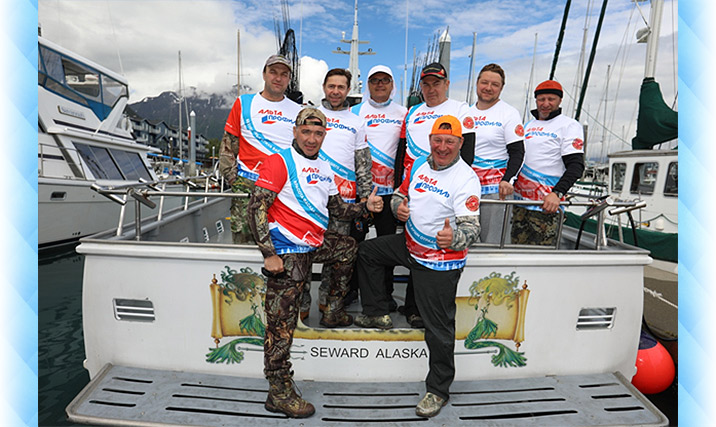
We were aimed at catching the maximum quantity of large specimens of various fish species and at the acquaintance with the coastal fauna.
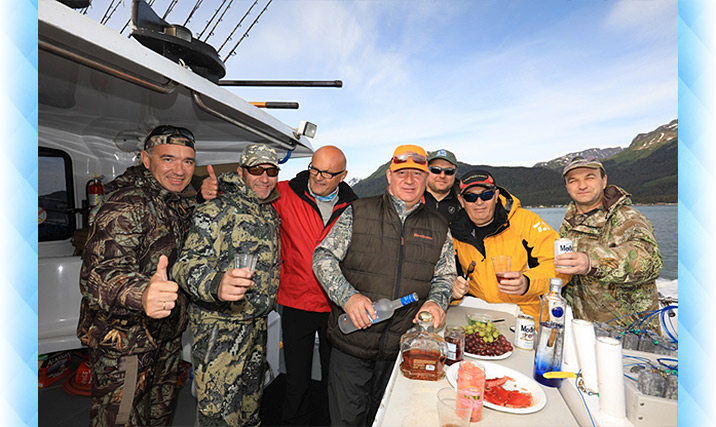
We met gray whales in the open ocean.
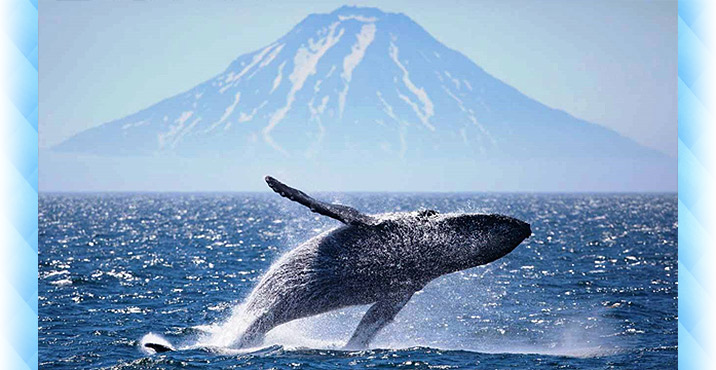
We were impressed by the diversity of the coast – majestic mountains covered with the forest, rocks of different shapes, and glaciers glistering in the sun. Huge blocks of ice were breaking away from them and falling into the ocean.

We moved a few dozen kilometers away from the shore and came up to the islands the only inhabitants of which were huge colonies of seabirds and seals.
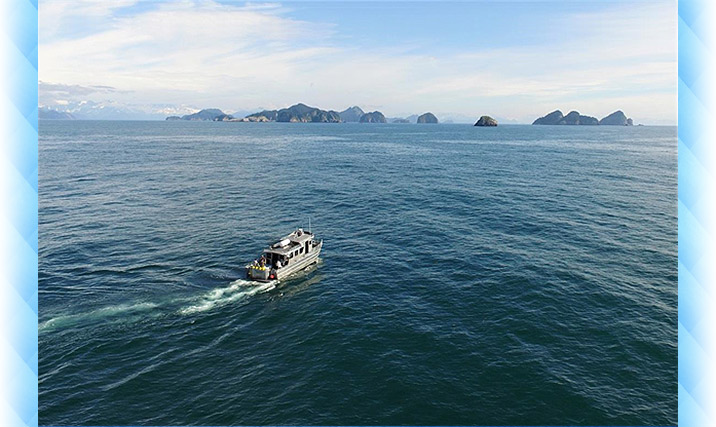
The oceanic fishing in Alaska is aimed at the flow of anglers interested in the quantity of fish mostly, but not in its trophy qualities. Due to this, practically all the sport fishing boats do not go far in the open sea and fish at the exit from the gulf. It is quite easy to catch medium-size halibuts, sea bass, and salmon that is why skippers compose mixed groups, take as many clients as possible, and go to the nearest fishing point. On the one hand, it is quite woefully, particularly for those who order such fishing with the hope to get an outstanding trophy, but on the other hand, it allows us to keep the farthest fishing points safe from the unnecessary pressure.
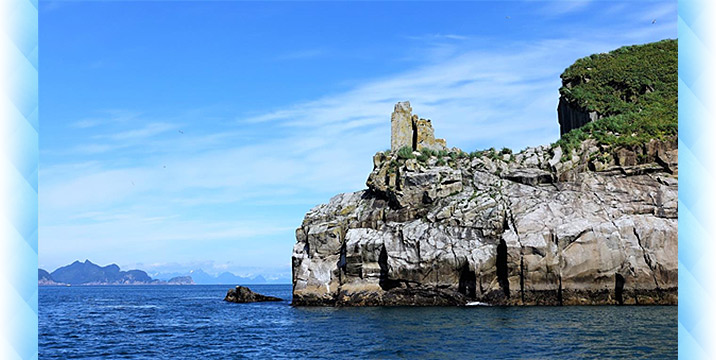
I am known among anglers as an organizer of the trophy fishing, and a few years ago the International Game Fishing Association (IGFA) gave me an opportunity to meet two skippers obsessed with outstanding trophies, participation in championships, and setting world records like me. For many years of fishing I’ve been to many unique places in these latitudes and have selected the most efficient fishing points for my clients. And due to our accumulated experience, in 2014, we won the championship for halibut fishing, by the way, 4 000 anglers took part in it. A trophy weighing 142 kilos brought us the victory. And this time, we went to the points which had been verified before.
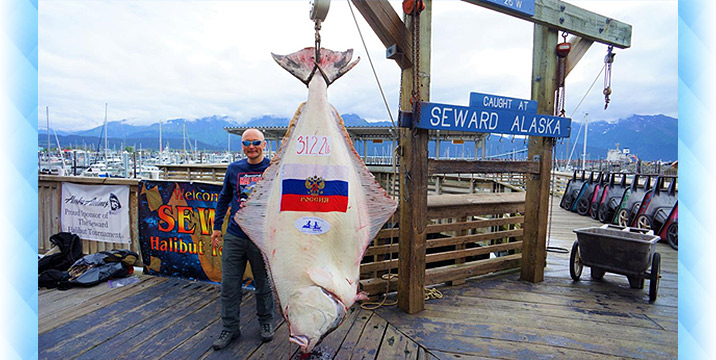
The successful fishing for large halibut in Alaska in many ways depends upon the Moon phases, and as a consequence, on the daily ocean level change. The maximum amplitudes of tides move a huge amount of water in the bottom layer and activate the low-activity giants which are extremely lazy and come to the baits for a long while even if you feed them up actively.

It is not only necessary to choose the right skipper, the right fishing point and the date, but it is also necessary to be incredibly patient to catch a large halibut. Anglers will understand how difficult it is to stay in one place with the low striking for a long time. It usually seems that changing the place will immediately bring the catch. Unfortunately, that’s not true, and you should patiently wait and go on luring the originally chosen area with the pieces of chopped herring which are carried along the bottom by the current, and finally, will bring a halibut to your baits.

Following my recommendation we went fishing with an overnight stay, as the largest specimen peak activity falls on the sunset, the first part of the night, and the dawn. In some cases, when the current is strong due to a strong tide, it is possible to get good trophies in the daytime, but fishing with overnight stays is always more efficient. Our boats are equipped with beds (with warm blankets), heaters, and grills to cook the trophies we catch. An overnight stay on the boat under the protection of the islands is quite comfortable and efficient from the point of view of fishing results. So, the tackle was cast, and the anglers froze in anticipation of the first strike. Our first trophies were yellow eye rock bass.
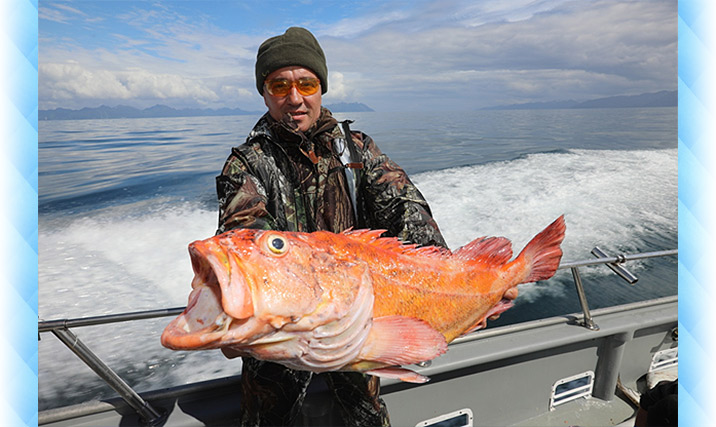
This bottom predator is one of the largest representatives of the bass family. It is sometimes called “red snapper”, but you shouldn’t confuse it with the similar species from the Indian Ocean, they are absolutely different. Yellow eye sea bass is one of the longest living species of fish and can live up to 120 years.

The World Record is 17.5 kilos (according to the IGFA data) and it was set in Alaska.
The oceanic fishing in Alaska is quite dynamic and interesting. Many anglers compare it with the cod fishing in Norway, but I think, the sea fauna of Alaska is much more diverse, and it is more pleasant to fish for different species not having the slightest idea of what the next trophy will be. There is some cod in Alaska, but not so many as in Norway. The other difference is more comfortable catching horizons, in Alaska we usually go fishing at the depths of 40-70 m. Very heavy pilkers and jigs used in Norway are not required here, and the weight of baits is about 250-400 grams.
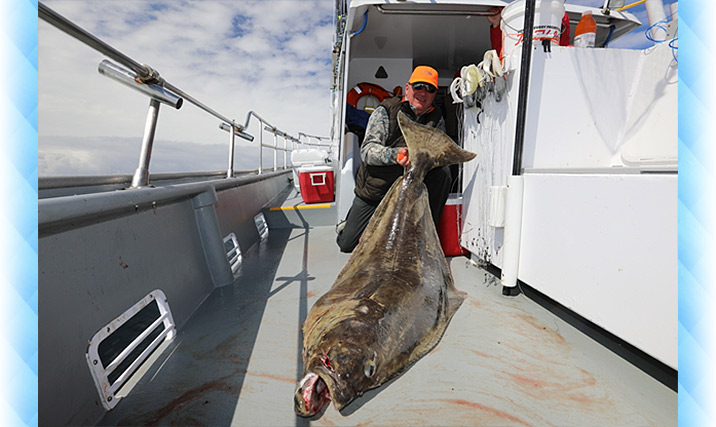
Having caught a few medium halibuts, we had steamed halibut steaks and filet of sea bass, grilled vegetables, and salads for dinner.
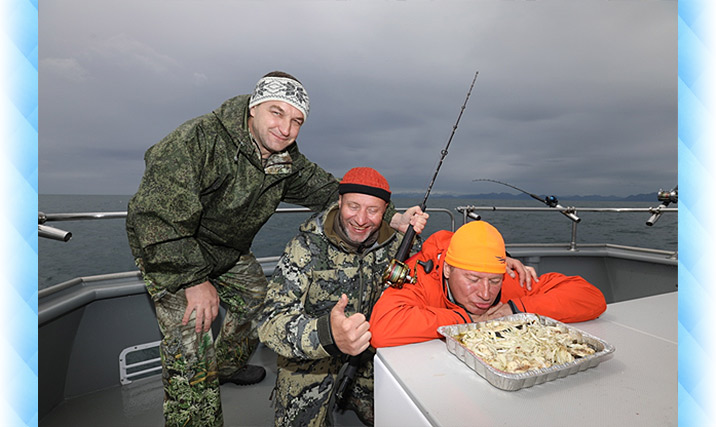
The fishing in the open ocean always increases appetite, and the cold climate of Alaska makes a hearty meal an integral part of the day.
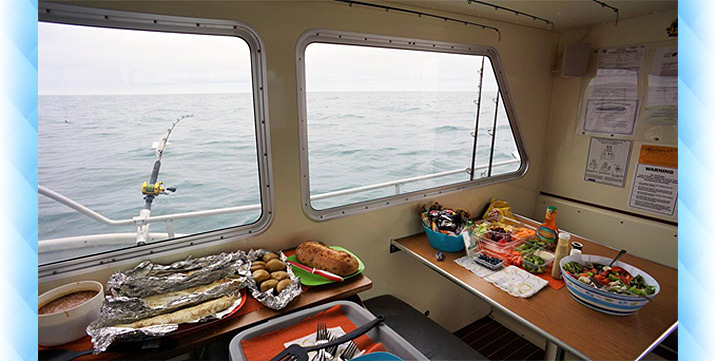
After dinner we caught a worthy specimen, before taking it aboard our skipper shot in its head with a carbine. A large halibut is able to ruin the deck and cripple the team and clients.

In the evening the striking was much better and after getting dark, halibuts struck one after another. In summer it gets dark very late in Alaska, and it got dark by the midnight only. By that time, most of our team had been already sleeping and only few the most persistent fishermen led by Anton went on fighting against “superior enemy forces”.
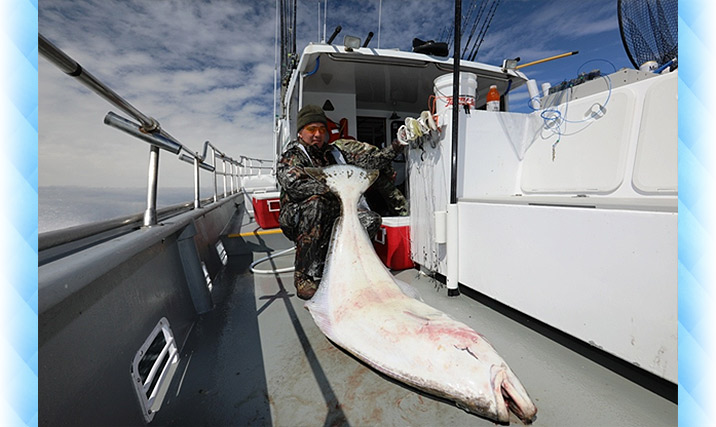
According to eyewitnesses, the peak of striking came at 1 a.m., and only after all the fish licenses had been closed and the anglers were finally exhausted, they decided to go to sleep. In the morning, we were woken up by our skipper who had found a flock of the Chinook salmon. He believed there was a possibility to get good trophies.

It didn’t take him long to persuade us, and in a few minutes, we took the first specimens aboard.
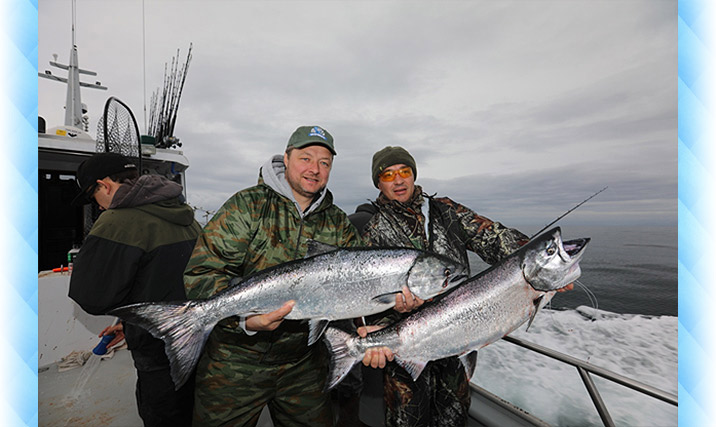
It should be noted, that the taste of the Chinook caught in the ocean is much better than the taste of the Chinook which entered the freshwater to spawn. Thus, we decided to mix business with pleasure and catch some fish for the shipment to Russia. It is allowed to bring fish from Alaska and we did not fail to take advantage of that.
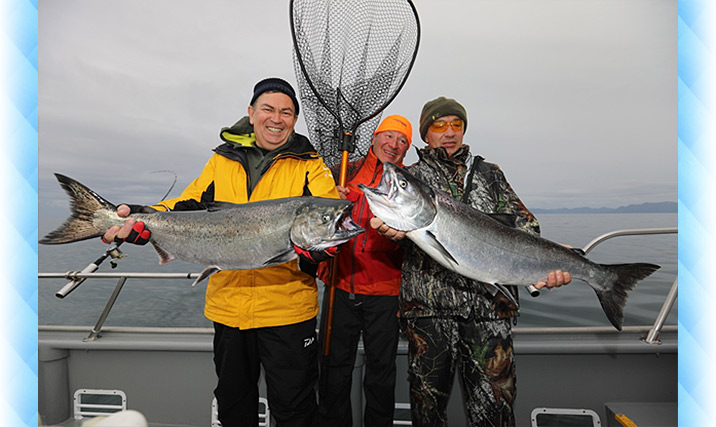
On our way back to the home port we looked through the fish we’d caught and were pleasantly surprised at its quantity.

Having come to the port, we weighed the largest halibut. It was 60 kilos, despite the fact that it had been lying in the ice all night.

Then we took photos with the trophies and really enjoyed it.
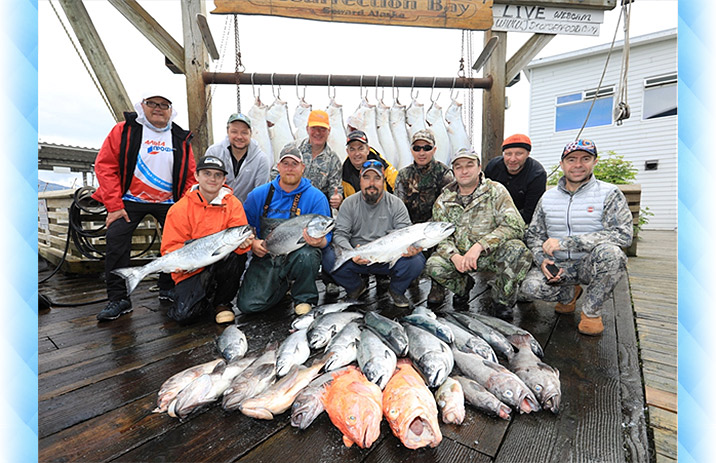
Our fishing was successful and diverse, and every angler was satisfied with it. Everyone confirmed the correct choice of the option with an overnight stay, but felt a little bit sad that the time had passed so fast, it would have been great to have one more day of fishing.

The fishing for the Chinook salmon in the fresh water was ahead of us, and I’ll describe this part of our trip in the next report.
Next season we are ready to arrange an excellent fishing tour for you and not only in North America!
